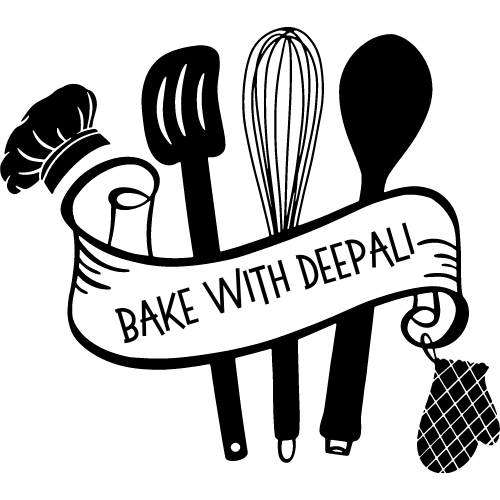So I have already explained the IELTS Listening Test format in my last article on IELTS. Here are the essential Tips for success in IELTS Listening Test. Learn more about the test here and develop your skills to do well.
Practise using the answer sheet
Here is an example of the answer sheet for the listening test. Download this answer sheet and practice using your answer sheet always. It’s very important that you are comfortable with all parts of the IELTS test before you actually go for the test. And that include spending ten minutes transferring your answers from your question paper to your answer sheet. You should write your answers clearly, so that they can be easily read.
You hear the recording only once
You will hear the recording only once. It is not played again so that means that when you have your test you need to listen to the recording, read the questions and at the same time write down your answers. So that means at one time you are listening, reading and writing. So you really are multi-tasking during this listening test. It can be quite difficult and it’s something you do need to practice.
Use a pencil
Many students ask me whether they should use a pencil or pen. The answer is you need to write your answers on the answer sheet using the pencil. And that the same with the IELTS reading test.

Scores are calculated by the number of correct answers.
So there are 40 questions there are 40 points, and each time you get a correct answer you get a point. And that’s how your band scores are calculated. There is no negative marking for incorrect answers. In case you don’t know the answer, guess and write, you never know maybe your guess works.

Number of words for each answer
If you look at the question paper, it will always tell you how many words you need for the answer. It would give you a rule. For example:
“No more than two words and/or a number”
You have to pay attention to these types of questions. Every time you get a new type of question the instructions might change. So you might always look how many words I can have for these answers. And when I move further down the page, how many word has it changed, underline it quickly so that you don’t forget. Now many students get confused about what it means. So let me explain
‘No more than two words’, so that means we cannot have three. ‘No more than two words and / or a number ‘so that means we can have two words and a number, or we can have just a number. So let’s have a look at the options, that way you will understand more clearly.
- Vendors: you could have one word
- Local vendors : you could have two words but not three
- 60 local vendors : you could have two words and a number
- 60 : Or you could have just a number
Now be very careful about the instructions because here you can see its written “ a number” sometimes it says and / or numbers and if that’s plural it means that you may have two numbers so make sure you pay attention to the instructions very closely.
Should we use preposition and articles?
Many students ask me whether should they use prepositions, should they use hospital, the hospital or at the hospital, what should they write for the answer?
Well it depends on the type of question you have; I will tell you later in this lesson that there are different types of questions; form completion, sentence completion, summary completion; note completion and each of them are little bit different.
“at” the hospital
- Place: (2)…………………….
- The best place to meet is …………………..
Now you can see option 1 above; this is an example of a question from a form, they tell you the type of information they want and you write your answer in the blank in front of the question and it can be just one word. So it would be possible to write just hospital. But if we look at the option 2 above; it’s a sentence and that means when we fill in the answer in the blank, the sentence must be grammatically correct because we are completing the sentence. So here we must say “the best place to meet is at the hospital” and that would be three words. So you need to look at the type of question, are you just making notes, or are you completing sentences.

All words and numbers are counted:
All words are counted, even if they are small words. So for example, a holiday that is two words. That’s the same for reading and writing, and 1950 would be considered as one number.
Spelling is important:
If you spell a word incorrectly. It will be marked wrong, so that means that of course when you are listening you don’t have time to think about spelling but in listening you have ten minutes at the end of your test to transfer your answers to the answer sheet. That is the time to pay attention to spellings, your capital letters, check the grammar, use the ten minutes for transferring answers wisely.

Words or letters
Should you write words or letters on your answer sheet? Now that’s very important, you can see here we need to write a word or here we need to complete a sentence. With one or more words. But if it’s a multiple choice, that’s different. The instructions tell you to choose the correct letter so that means we have got
- Spring
- Summer
- Winter
So when we choose an answer for example B, we need to write B on the answer sheet, if we write summer on the answer sheet it is marked wrong. So although you have the correct answer really you have written the wrong answer on your answer sheet because you needed to write a letter so make sure you read the instructions carefully. The instructions will tell you if you are going to write a letter or a word and again that is the same as IELTS reading.
Question Types
- form completion
- note completion
- summary completion
- sentence completion
- multiple choice
- diagram labelling
- map labelling
- table completion
- form chart

One of the most important tips to help you prepare for your IELTS listening test is to learn about the type of questions that you will get in IELTS listening. There are quite a lot as you can see above, of different types of questions. When you go for the test, you have enough time to read the question and answers but you don’t have enough time to try to understand what to do if you have never seen that type of question before. So knowing and having a strategy, a technique, for each type of question is important for your IELTS listening tests. Now one of the most difficult types of questions is the multiple choice that’s often where you have a B or C to choose from but multiple choice could also be a very long list for example eight options and you need to answer three questions relating to all those eight options. Or the multiple choices might be a choice of people’s names.
Do you remember in section three, there are three or four speakers so you might have to match the name of the person with the information. So there are different kinds of multiple choices. There also a map completion. And that’s when you have been given the map of a town or some streets, it might also be a building plan so that’s when you have got all the rooms in a building that you have to label and complete.
It could be diagram labelling so you have got a diagram and your answers relate to parts of that diagram. You could have form completion, that’s very common in section one or note completion that’s very common in section 4
You could have flow chart completion sentence completion that’s a very common type of question. Summary completion is little bit similar to sentence completion except this is more like a small paragraph that you need to complete.
We also have short answer questions so these are questions that might need one-word answers, two-word answers or three word answers. And of course table completion as well.
So there are a lot of different types of questions that you need to practice. f you want to have practice with these question types then you can get a book of practice tests. (I have shared the links below)






